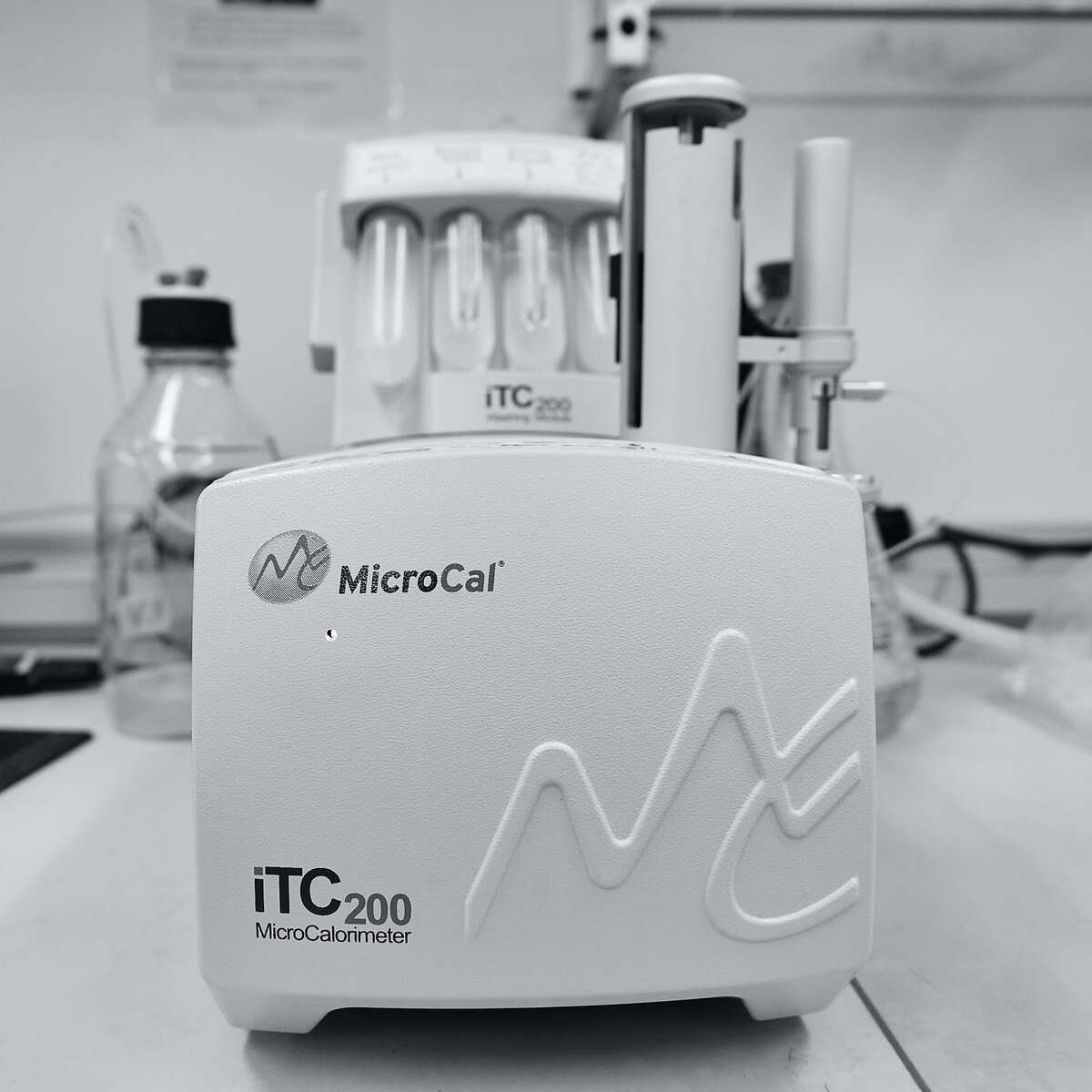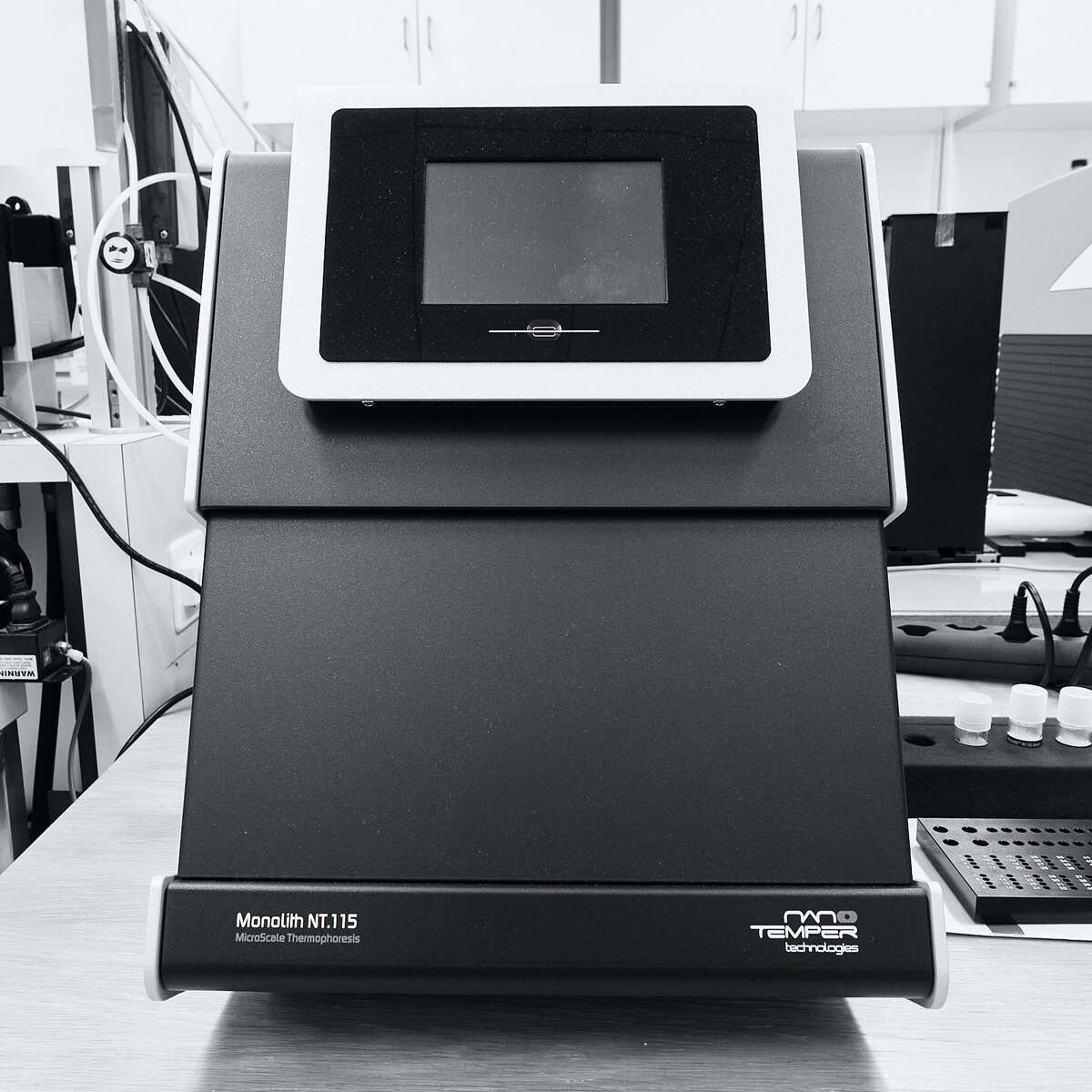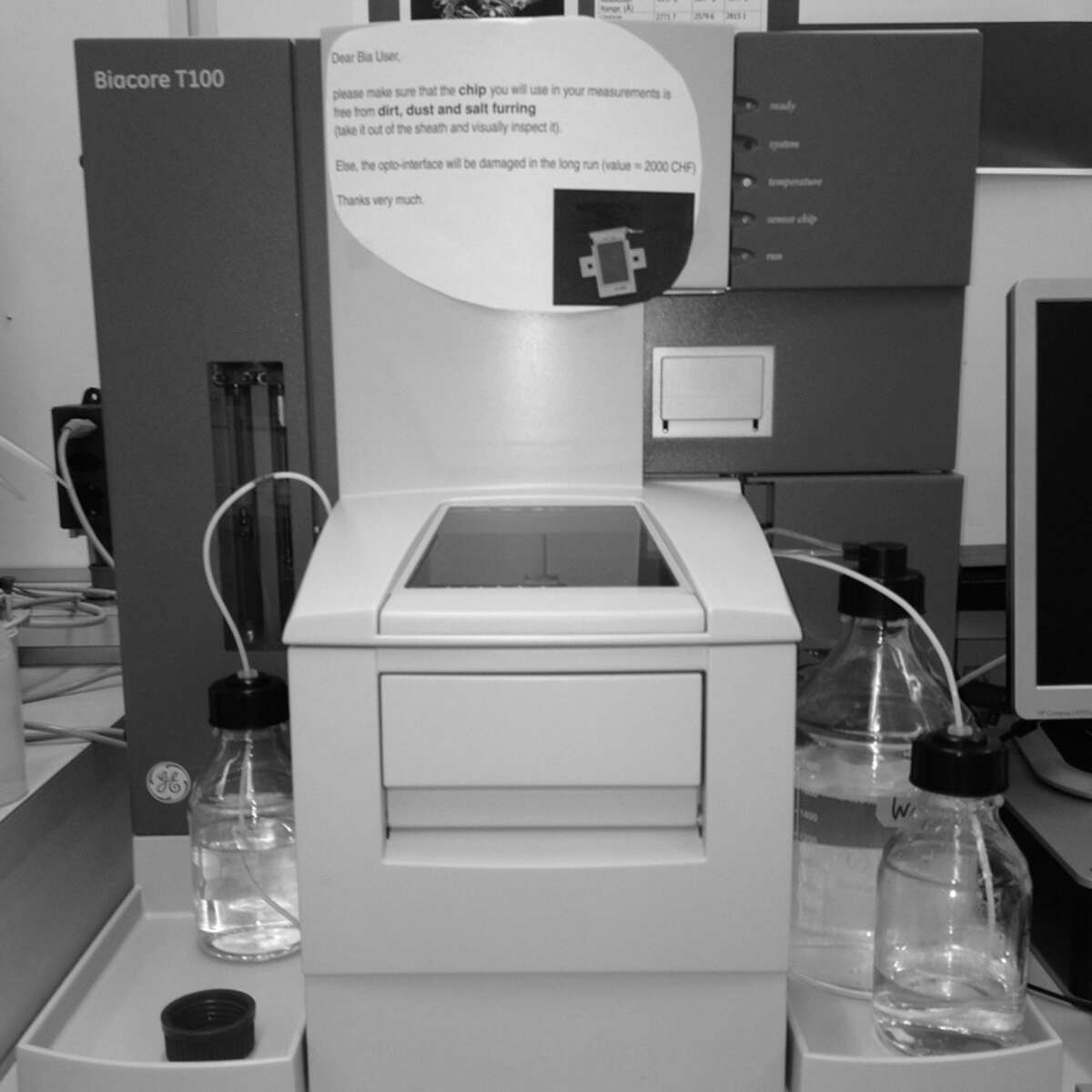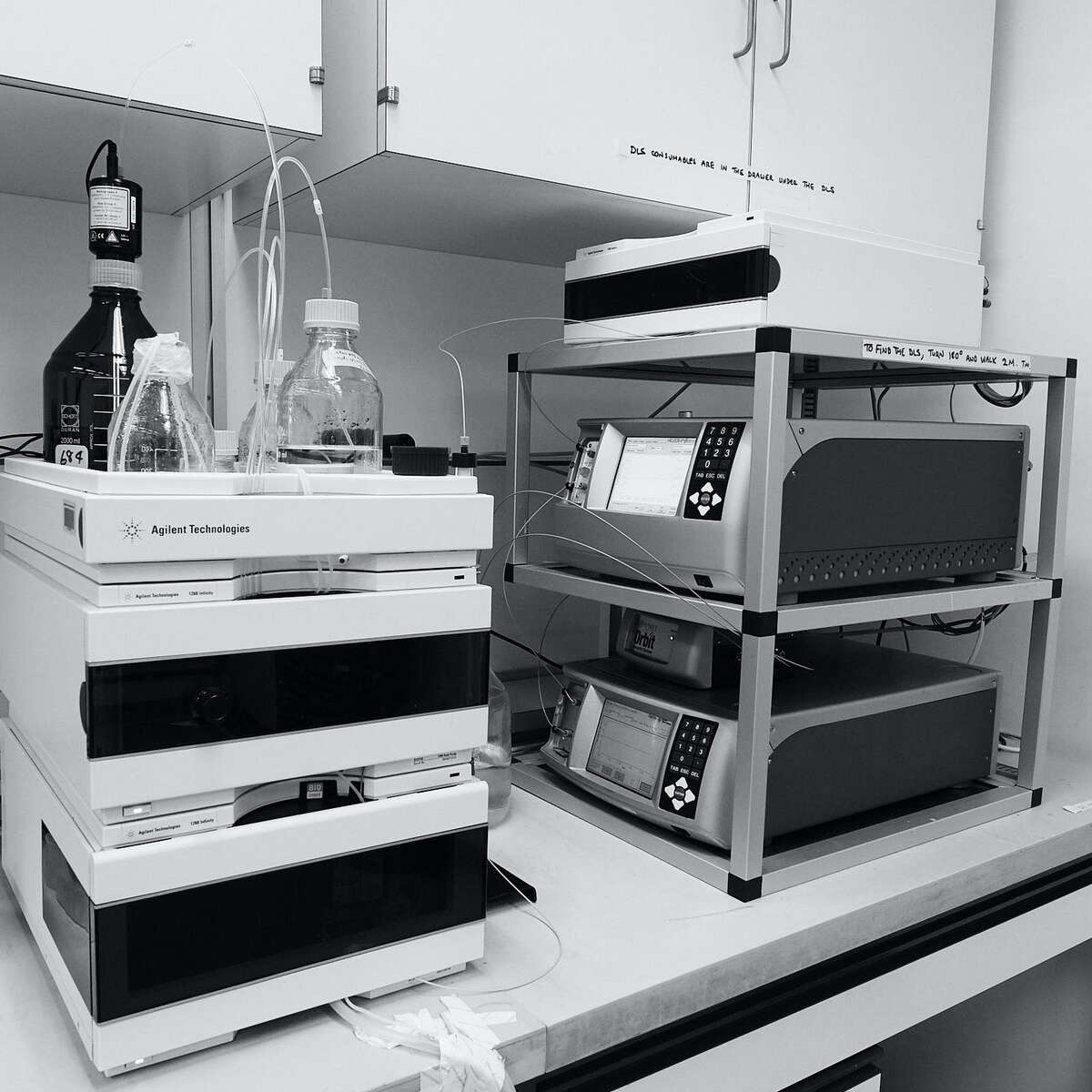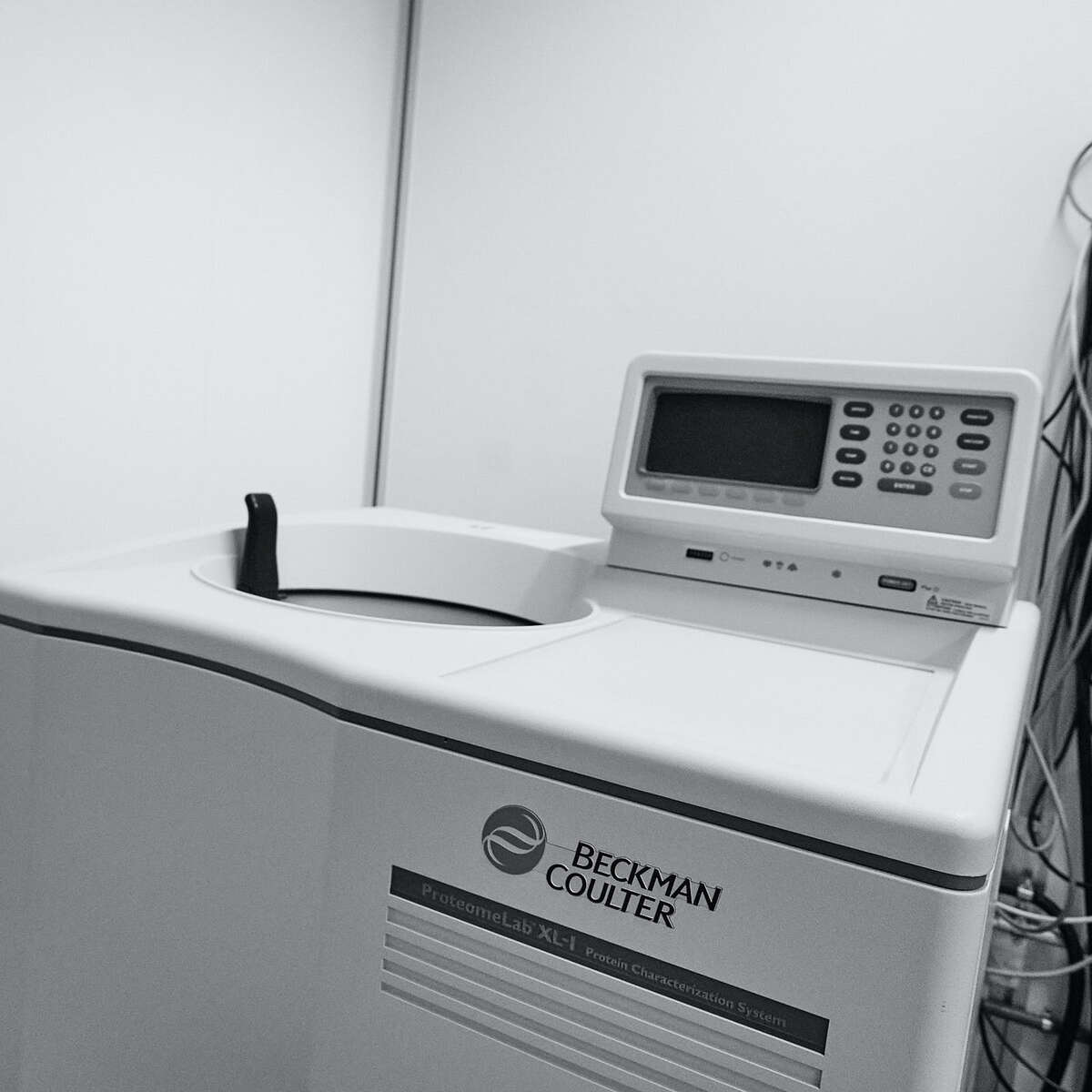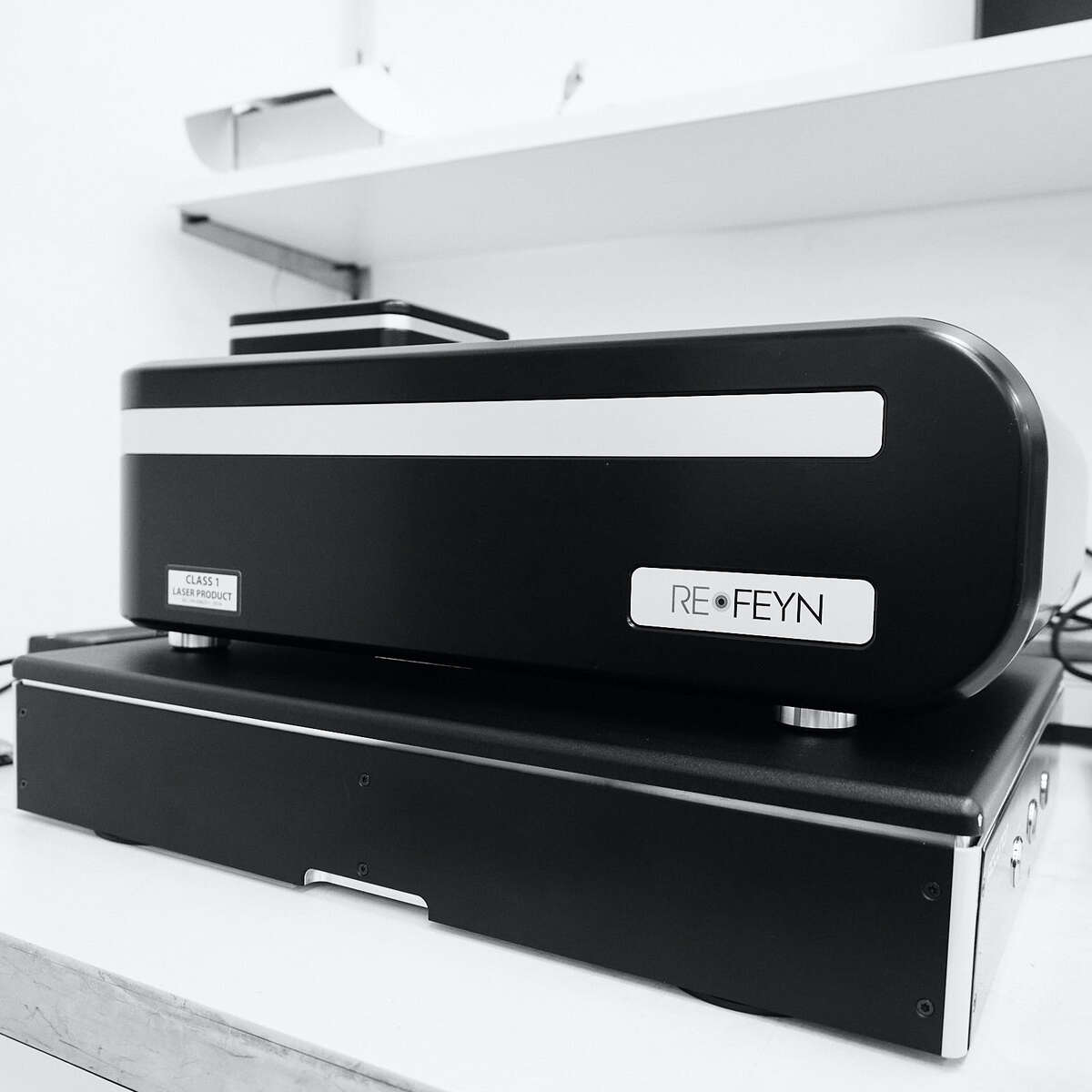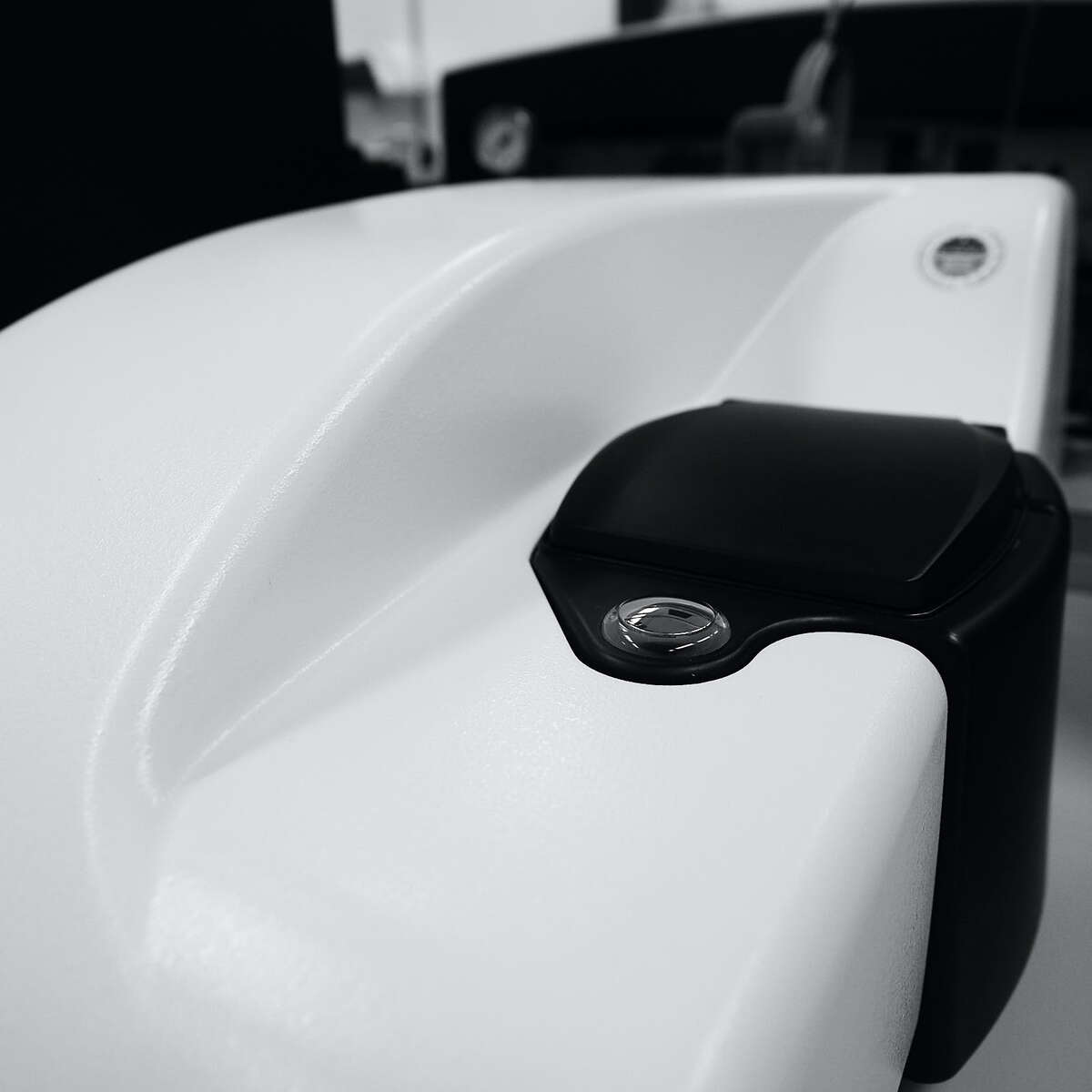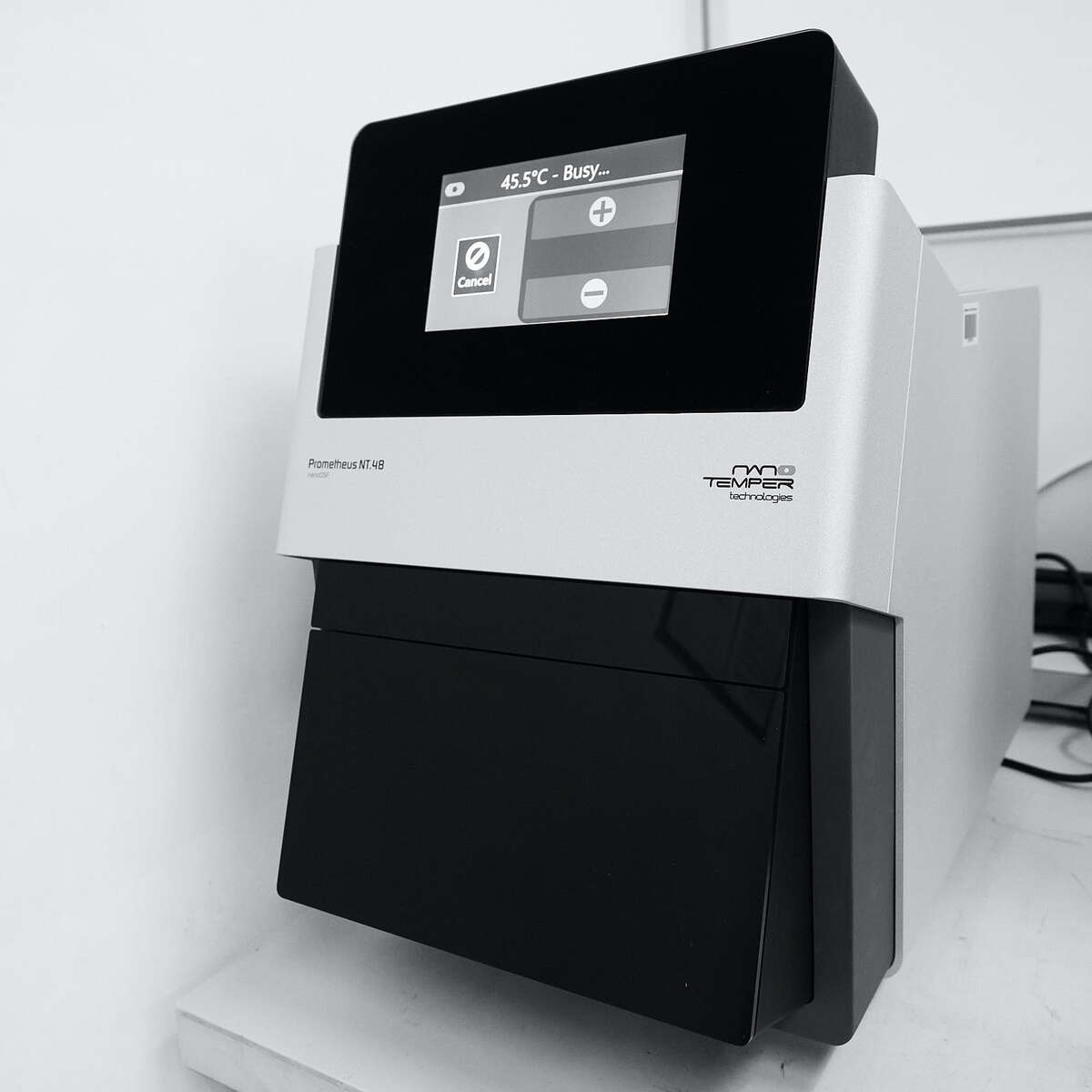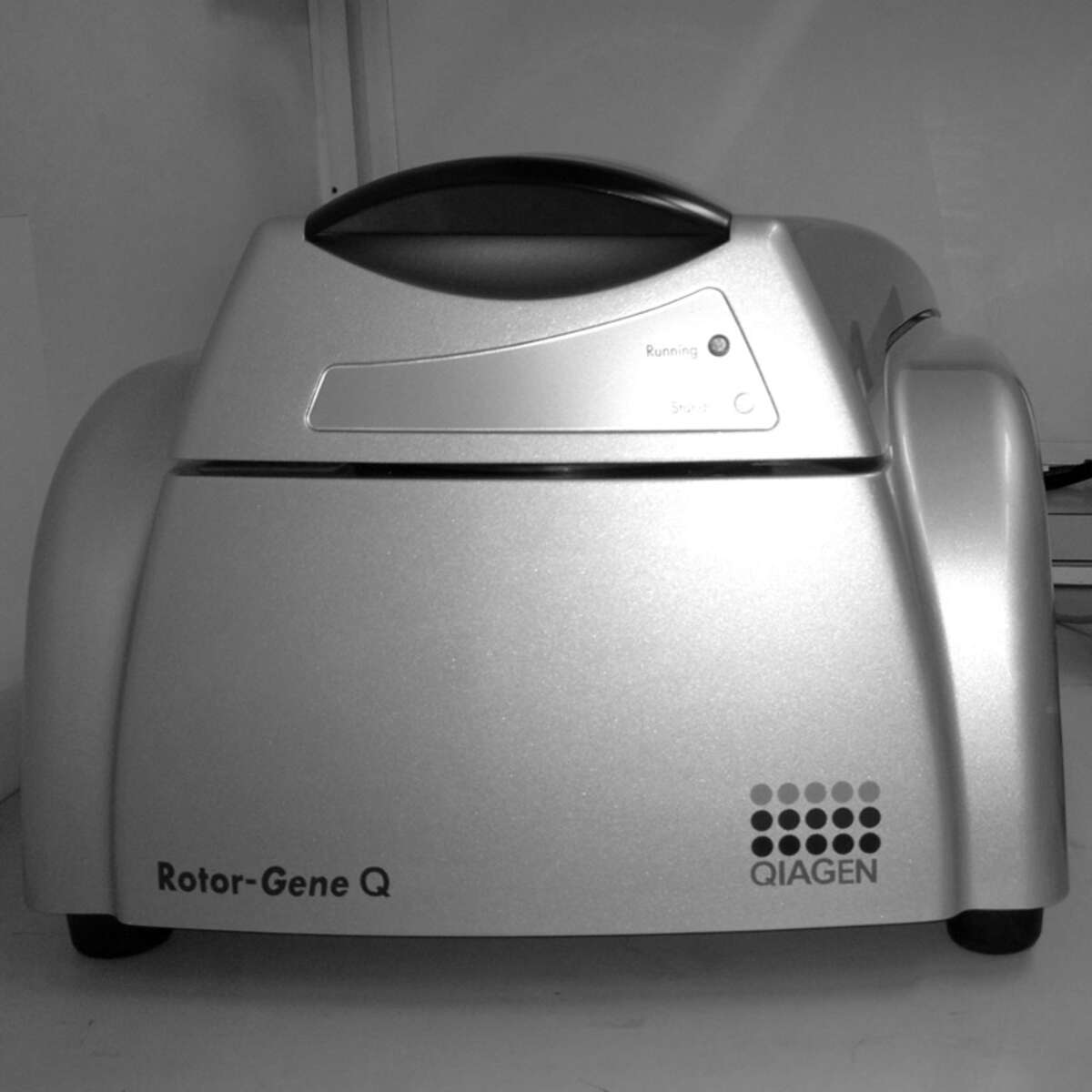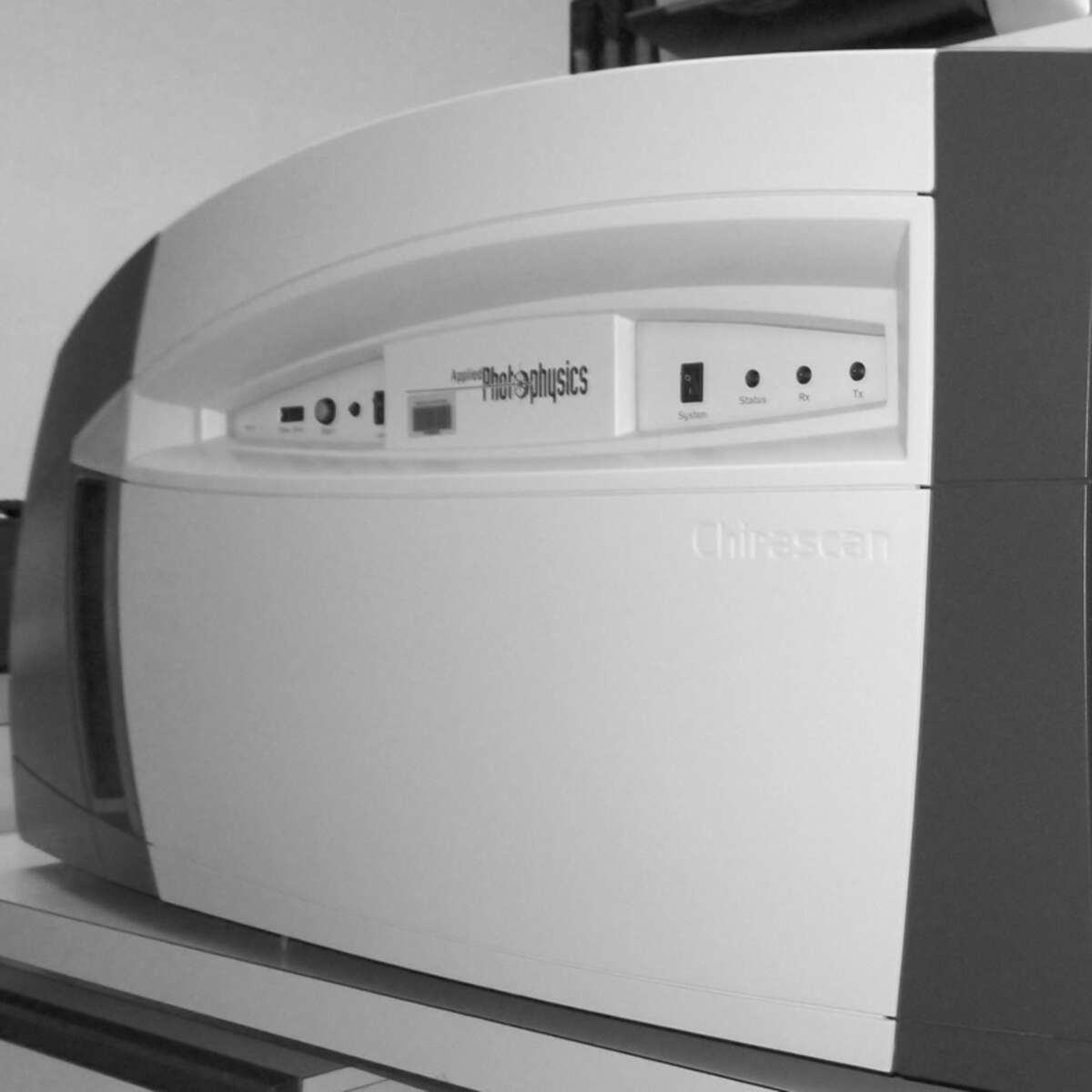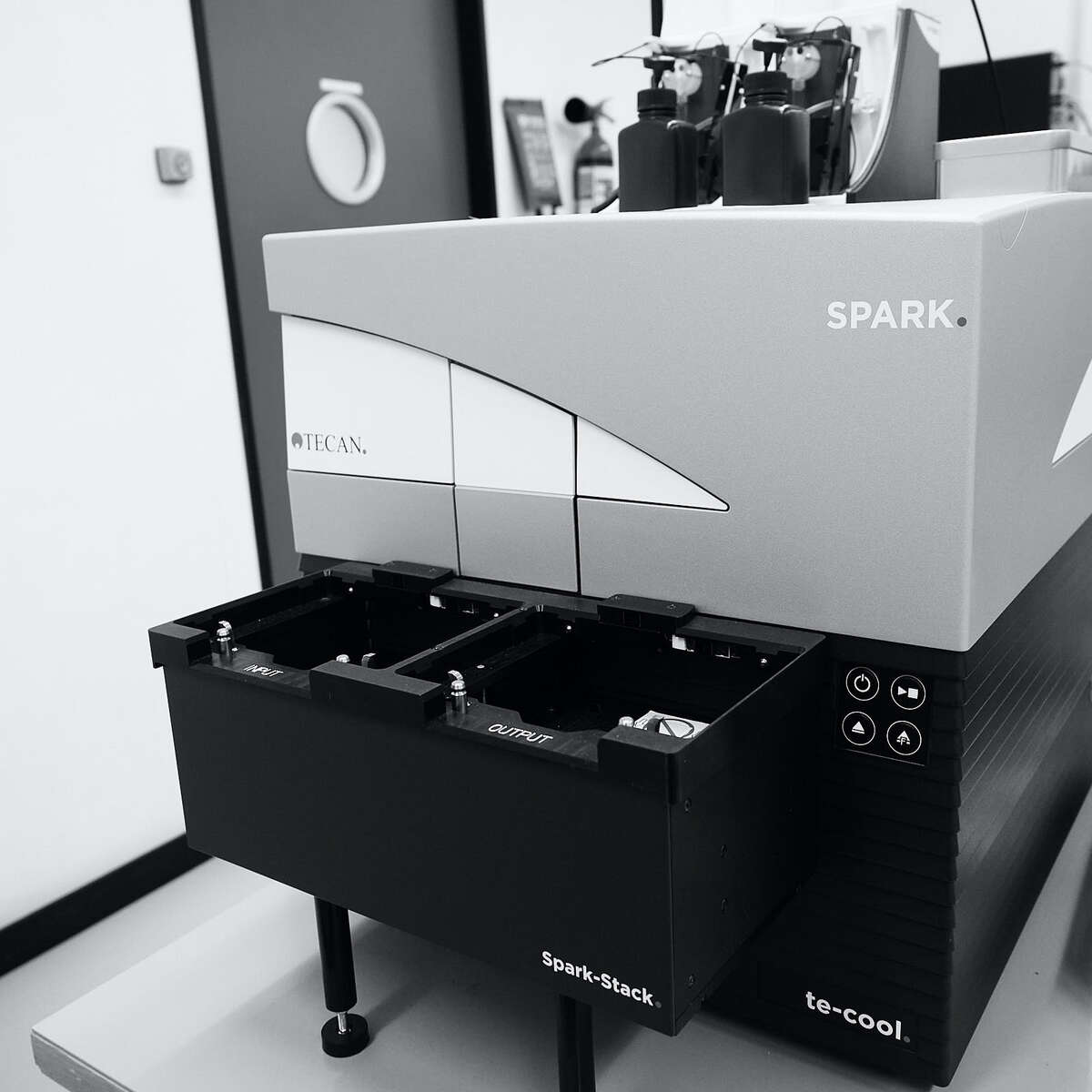Instruments
The instruments shown below are available in the Biophysics Facility (BF) of the Biozentrum and can be booked and used by all members of the University of Basel, following training by BF staff. The instruments are also sometimes available to external users, by arrangement with BF staff. In both cases, usage fees apply. BF staff are happy to train users to operate the instruments, help them to plan and execute experiments, and provide support in interpreting data and preparing it for publication.
Binding Affinity and Kinetics
Microcal ITC200
An isothermal titration calorimeter (ITC) that measures interactions between biomolecules by following absorption or release of heat. This instrument has a small cell volume (200 µl) to shorten experiment times and to minimise sample consumption.
Nanotemper Monolith NT.115 MST
A microscale thermophoresis (MST) instrument that measures biomolecular interactions by observing the movement of fluorescently-labelled molecules along a temperature gradient.
Molecular Mass, Size and Shape
Wyatt SEC-MALS System
A set of instruments for size exclusion coupled multi-angle light scattering measurements (SEC-MALS) to measure the molar mass of biomolecules in solution. We have an Agilent HPLC system with an autosampler and a multi-wavelength absorbance detector, a variety of SEC columns, and Wyatt multi-angle light scattering (Heleos 8+) and differential refractive index (Optilab ReX) detectors.
Beckman XL-I AUC
An analytical ultracentrifuge (AUC) that measures the mass and shape of biomolecules by following their sedimentation under centrifugation in real time, using absorbance, interference (differential refractive index), or fluorescence optics.
Refeyn OneMP Mass Photometer
A mass photometry instrument that measures molar mass distributions for biomolecules by monitoring light scattering from single molecules as they land on a glass surface. The instrument can measure mass distributions in minutes from microlitre volumes at nanomolar concentration.
Malvern Zetasizer Nano DLS
A dynamic light scattering (DLS) instrument to measure the distribution of particle hydrodynamic radii in a sample by monitoring the fluctuation of scattered light intensity with time.
Protein Stability
Nanotemper Prometheus NT.48 NanoDSF
An instrument for differential scanning fluorimetry (DSF) that measures protein stability using thermal or chemical denaturation monitored by tryptophan and tyrosine fluorescence. The instrument can perform continuous or stepped thermal ramps, or isothermal stability measurements, on up to 48 samples at a time, with a sample volume of 10 µl. Our instrument also has back-reflection optics to detect sample aggregation.
Qiagen Rotorgene QPCR Thermocycler
A QPCR instrument that we use for differential scanning fluorimetry (DSF) to measure protein stability by performing thermal denaturation monitored by extrinsic dye fluorescence. The instrument has optics suitable for DSF using SYPRO Orange (for soluble proteins) and CPM (for membrane proteins).
Spectroscopy
Applied Photophysics Chirascan Plus CD
A circular dichroism (CD) spectropolarimeter that characterizes the secondary and tertiary structure of biomolecules by measuring the differential absorption of left- and right-handed circularly polarised light.
Tecan Spark Multi-Mode Plate-Reader
A multi-mode plate-reader that can measure fluorescence intensity, fluorescence spectra, fluorescence anisotropy, time-resolved FRET, absorbance and luminescence in 24, 96 and 384 well microplates. The optics are very flexible, allowing the use of high-performance monochromators or user-exchangeable filters for all fluorescence measurements. Our instrument has a stacker for automated reading of multiple plates, an injector and lid-lifter for automated addition of solutions to plates during experiments, and a cooling unit to allow accurate temperature regulation below and above room temperature.



